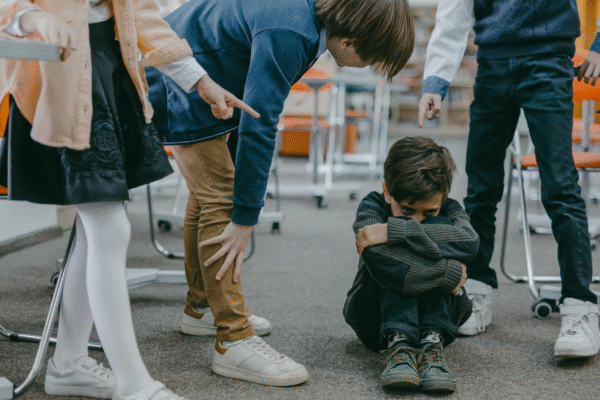“He was just ten. The game on his phone froze, and in a fit of rage, he threw the phone across the room. That night, he cried himself to sleep. Not because he broke the phone, but because he couldn’t feel anything else.”
This isn’t fiction. This is real.
And it’s happening in more homes than we care to admit.
A generation raised by glowing screens.
We used to say television was the new babysitter. Now it’s the smartphone, the YouTube auto-play, the endless scroll of Instagram Reels.
According to a 2023 report by the Indian Journal of Paediatrics, children aged 5 to 15 in India spend an average of 4.4 hours a day on screens. Sixty percent of them use mobile phones unsupervised.
And what do we hear parents say proudly?
“Mera beta toh phone ke bina khana hi nahi khata.”
Most don’t even realize this isn’t parenting. This is handing over childhood to an algorithm.
What really happens when screens replace people?
- Cognitive growth slows down
Too much screen time doesn’t just distract kids. It changes their brains. A study funded by the NIH in 2020 found that heavy screen exposure in children led to a reduction in grey matter, the part of the brain responsible for memory, empathy, and focus. - They forget how to be social
They stop talking. Stop listening. They start avoiding eye contact, real conversations, real friendships. They get lost in a loop of filtered videos and curated perfection, and when real life doesn’t look like that, they panic. - Decreasing attention spans
We’re raising a generation that can swipe faster than they can think. Their brains are rewiring themselves to crave constant stimulation. The result? Children are unable to sit still, concentrate on one task, or even finish a simple story without reaching for another tab or notification.
A child who once loved bedtime stories now wants everything “faster.” They can’t stay focused in class, or even during a conversation, because they’re used to things changing every three seconds on screen. - FOMO and the pressure to stay ‘updated’
The world is now just a click away. And while that sounds empowering, for children, it’s overwhelming. They see everything. Hear everything. Want to be part of everything.
They feel left out if they aren’t online. If they don’t watch the latest trend. If they’re not posting. This constant fear of missing out doesn’t let them rest. And what they miss out on most is real life.
“Children today have access to more information than wisdom, more connections than conversations, and more content than comfort.” - Anger, anxiety, and addiction
Gaming addiction isn’t just a phase. The World Health Organization declared “Gaming Disorder” a real mental health condition in 2019. And we’re seeing it play out in front of us. Kids throwing tantrums, becoming aggressive, unable to sit still or manage emotions without a device in their hands. - Exposure to porn at terrifyingly young ages
This one nobody wants to talk about. But we must.
According to a 2022 report by the India Child Protection Fund, the average age of first porn exposure in India is now just eleven years old. Most of this happens through smartphones, handed to them without filters, often unsupervised.
So who’s really responsible here?
Let’s be honest.
Children didn’t steal the phones.
Parents gave it to them.
For convenience. For silence.
So they could finish work, or cook, or just have five minutes of peace.
And while we scrolled on our phones, they watched us and learned.
What we are seeing today is not just a generation addicted to screens.
We are watching emotionally underfed children, mentally overstimulated, and desperately trying to connect in a world that forgot how to pause.
The long-term cost
Child psychologists in India have already raised the red flag.
Increased cases of depression in children.
More anxiety.
More violent behaviour.
More emotional numbness.
We’ve heard of children as young as nine talking about suicide.
We’ve seen cases where kids jump off rooftops to complete a “challenge.”
Where a selfie gone wrong became a funeral.
And every time, people say, “We didn’t know it had gone that far.”
But it had.
Questions we all need to ask!!
When did it become okay to replace presence with a screen?
Why is a phone easier to give than attention?
Why are we waiting for tragedies before we intervene?
And are we sure this isn’t a form of neglect?
We must ask
Are we raising children or raising screen users?
Are we truly present or just posting photos of presence?
So what do we do now?
We start small. But we start.
Make some parts of your home screen-free. The dinner table. Bedrooms. Study time. Weekend mornings.
Don’t just say no to the screen. Offer an alternative. A walk. A story. A game. A silly dance.
Start parenting offline, not just online.
Set filters. Limit apps. Install parental controls. But most importantly, talk to them. Ask them how they feel. Not just how they did in school, but how their mind feels at the end of the day.
Make time. Not reels.
One last thing
There are parents who wish they had known earlier.
Who now sit silently in grief.
Some parents wish, because they ignored the warning signs.
Because they thought “it’s just a phase.”
Because they didn’t believe that a phone could be fatal.
But it can.
This article isn’t a lecture. It’s a reminder.
And a mirror.
So look into it and ask yourself
Are you raising a human being who feels, connects, and dreams?
Or are you raising a child who knows how to scroll, but doesn’t know how to speak?
If this made you think, talk about it.
Share it.
And maybe tonight, put your phone away.
And ask your child how they’re really doing.












